Anthony Chua and Clarence Siut
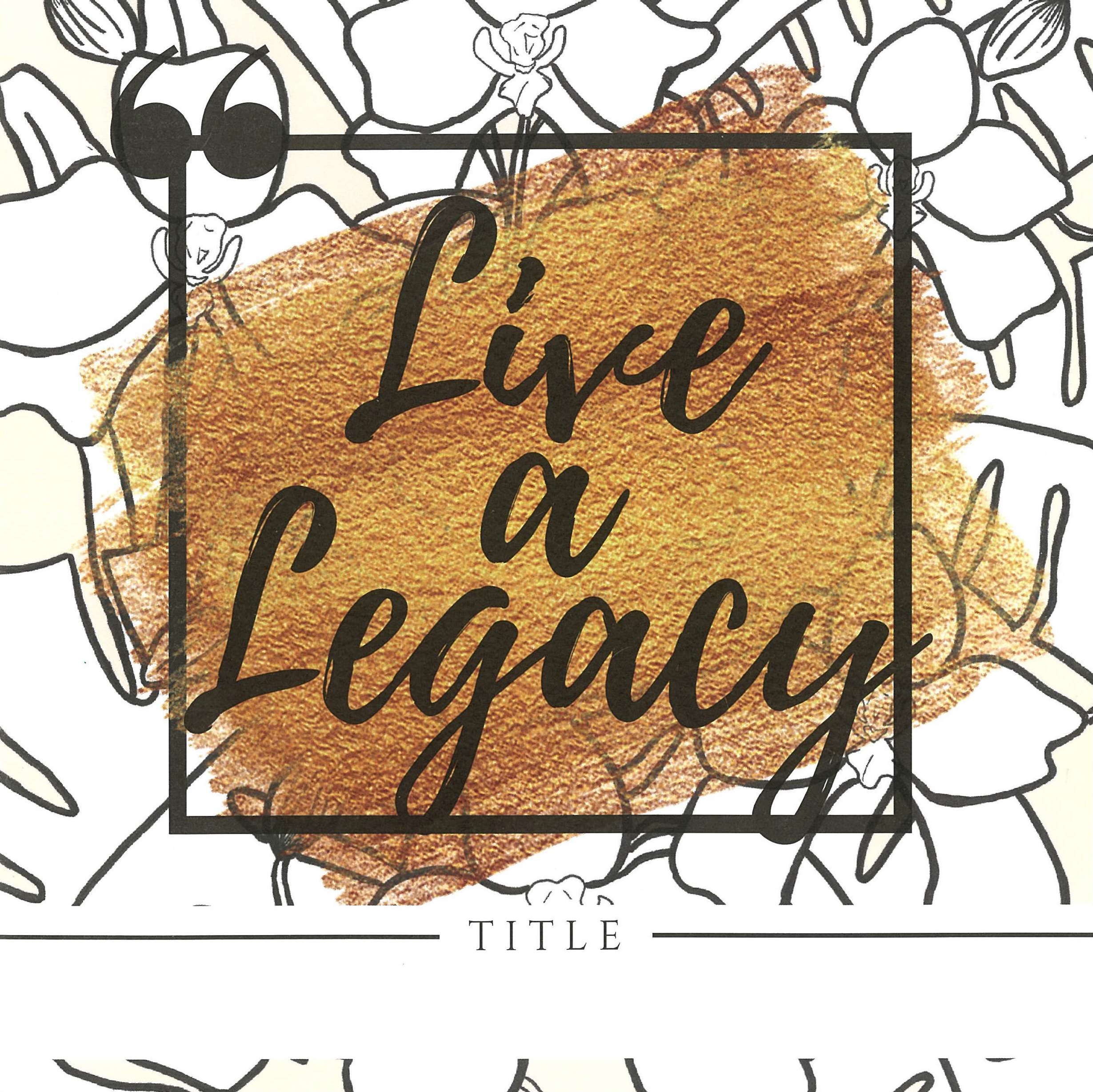
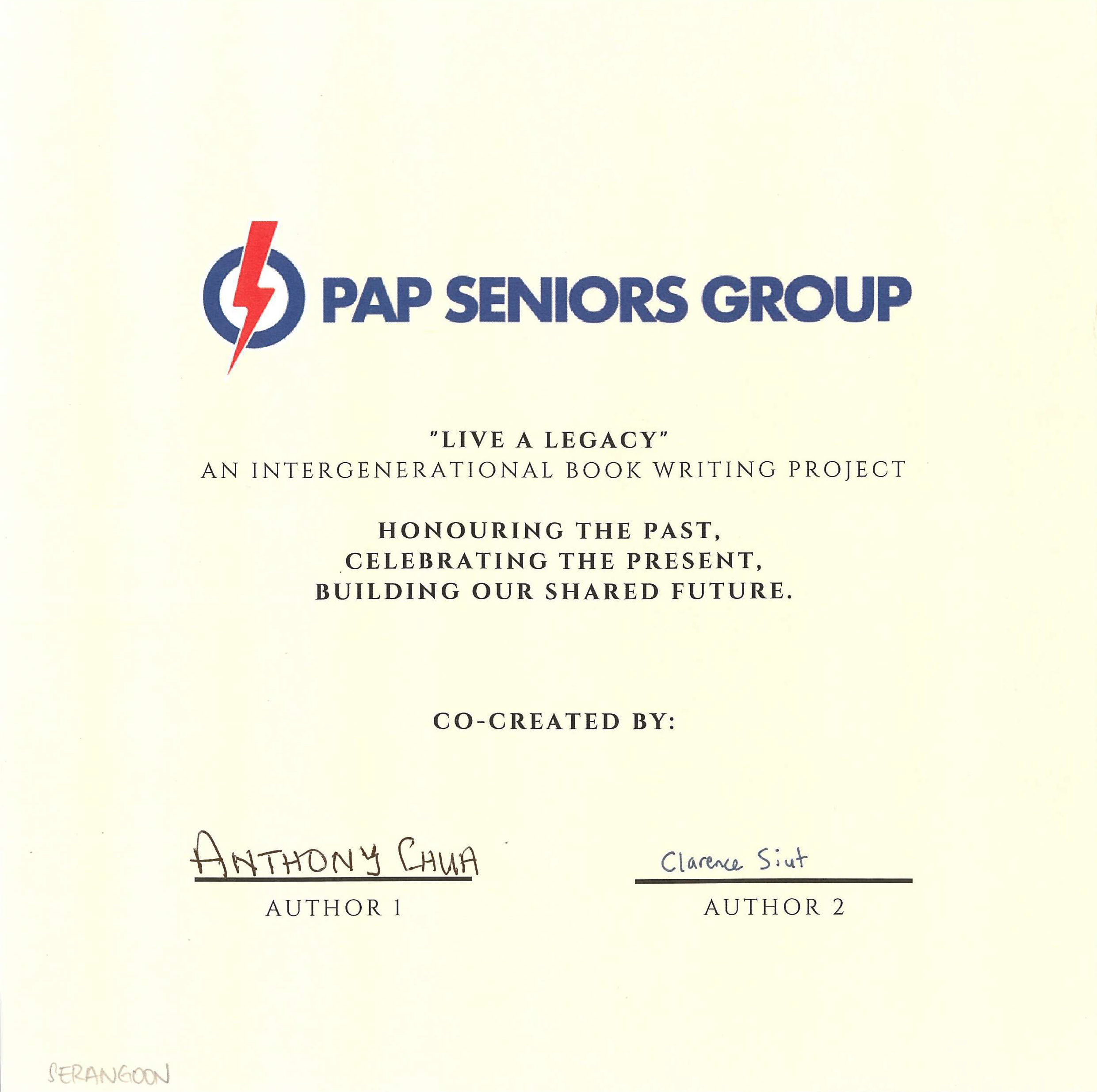
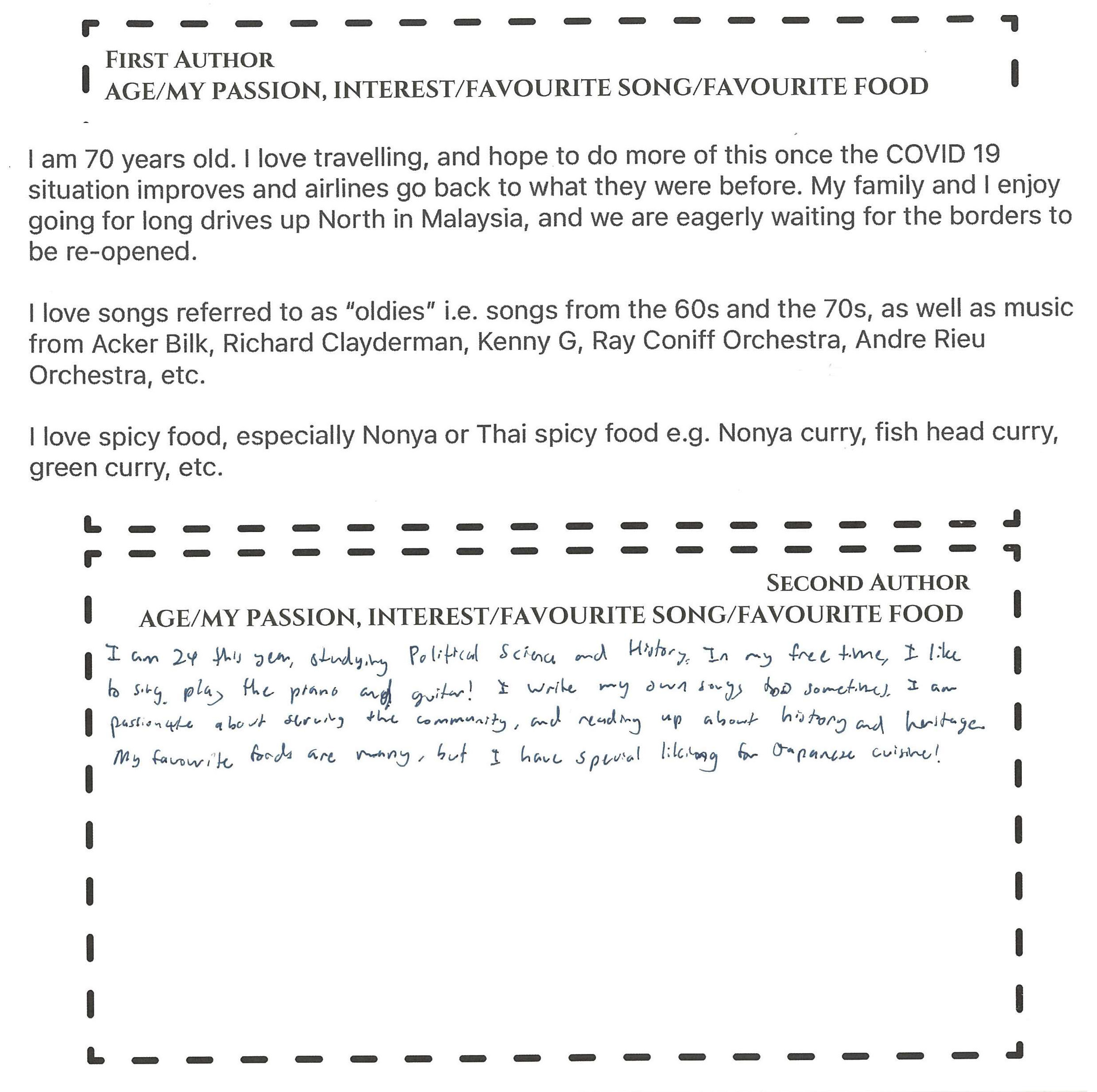
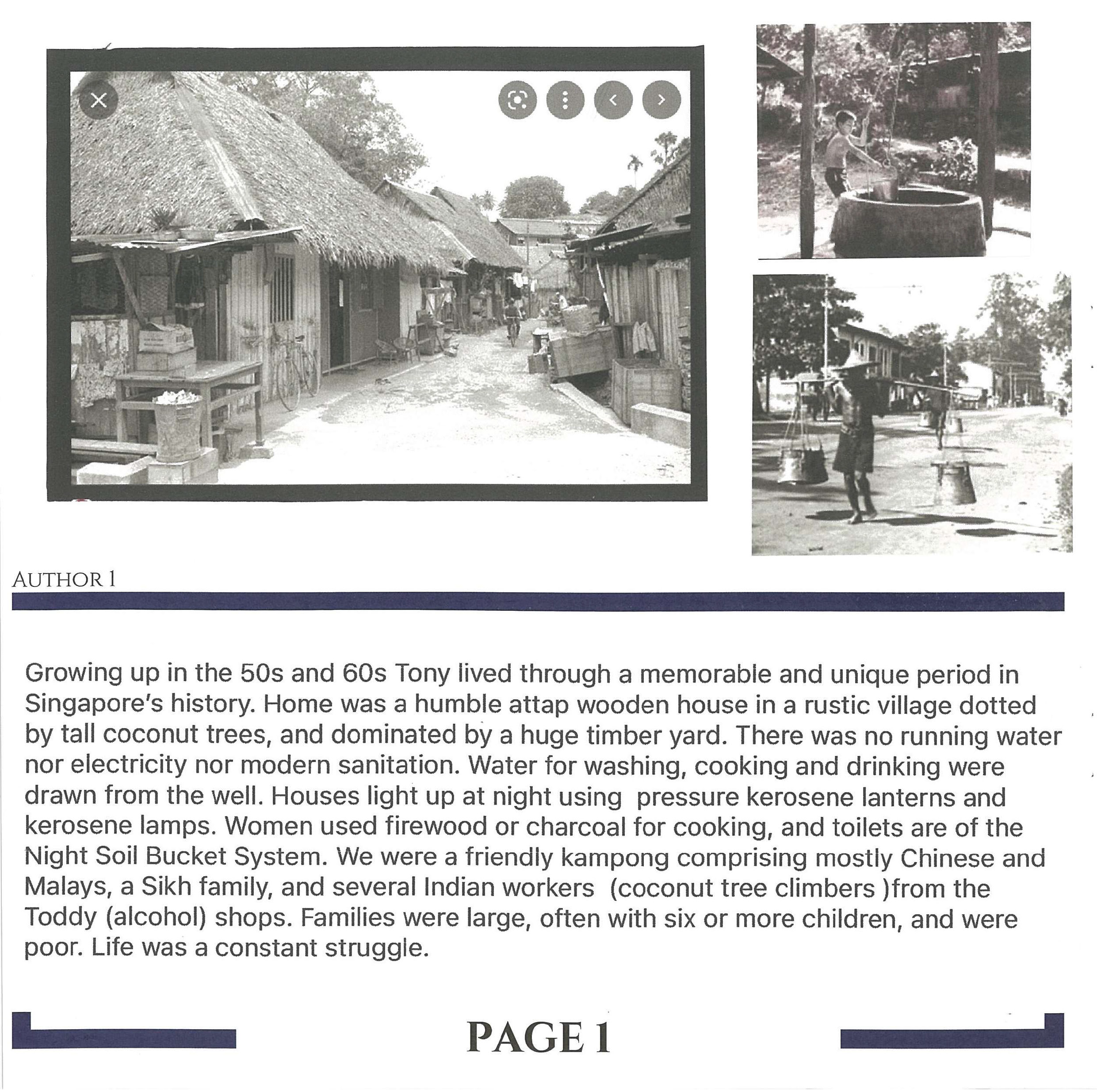
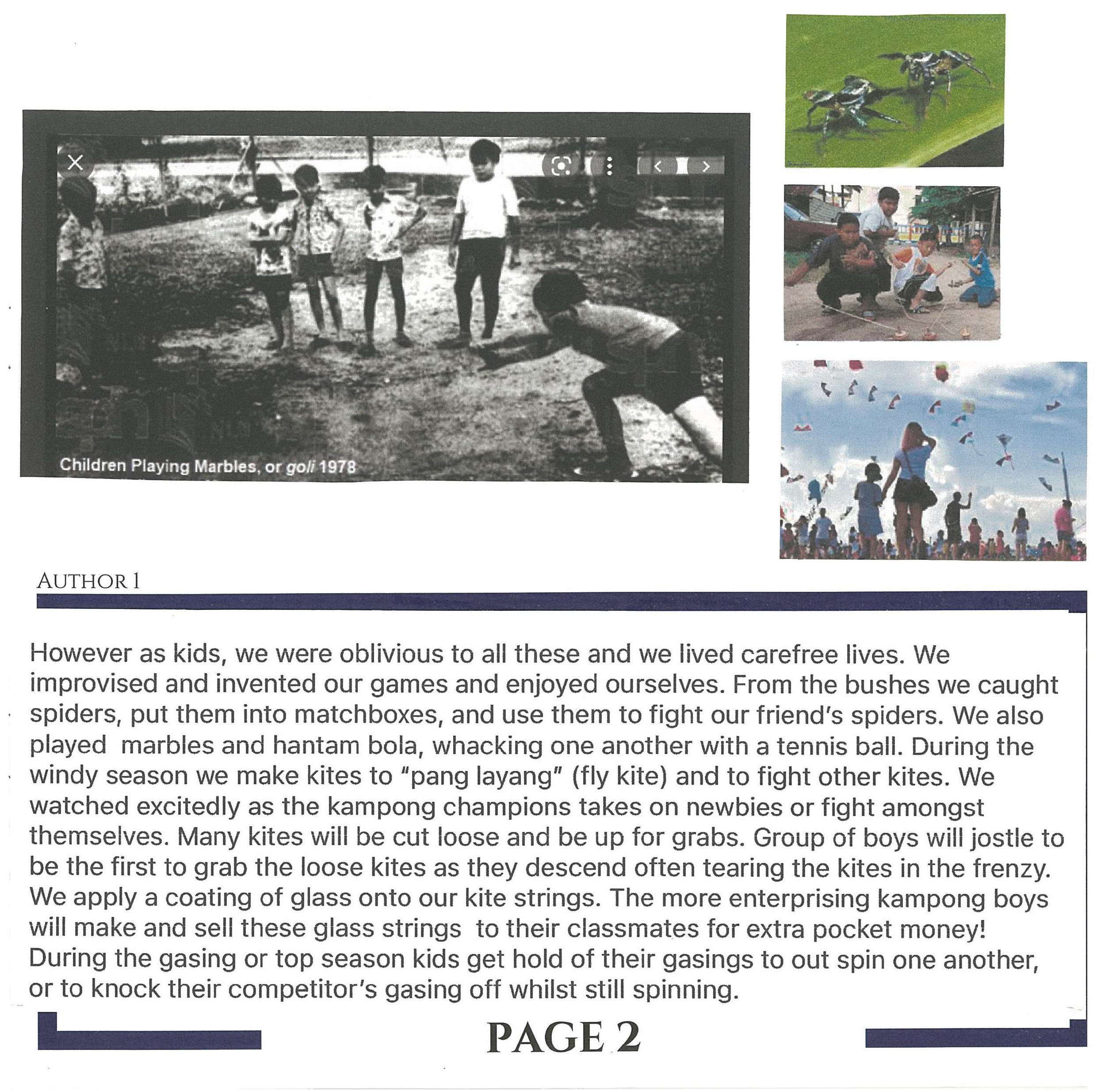
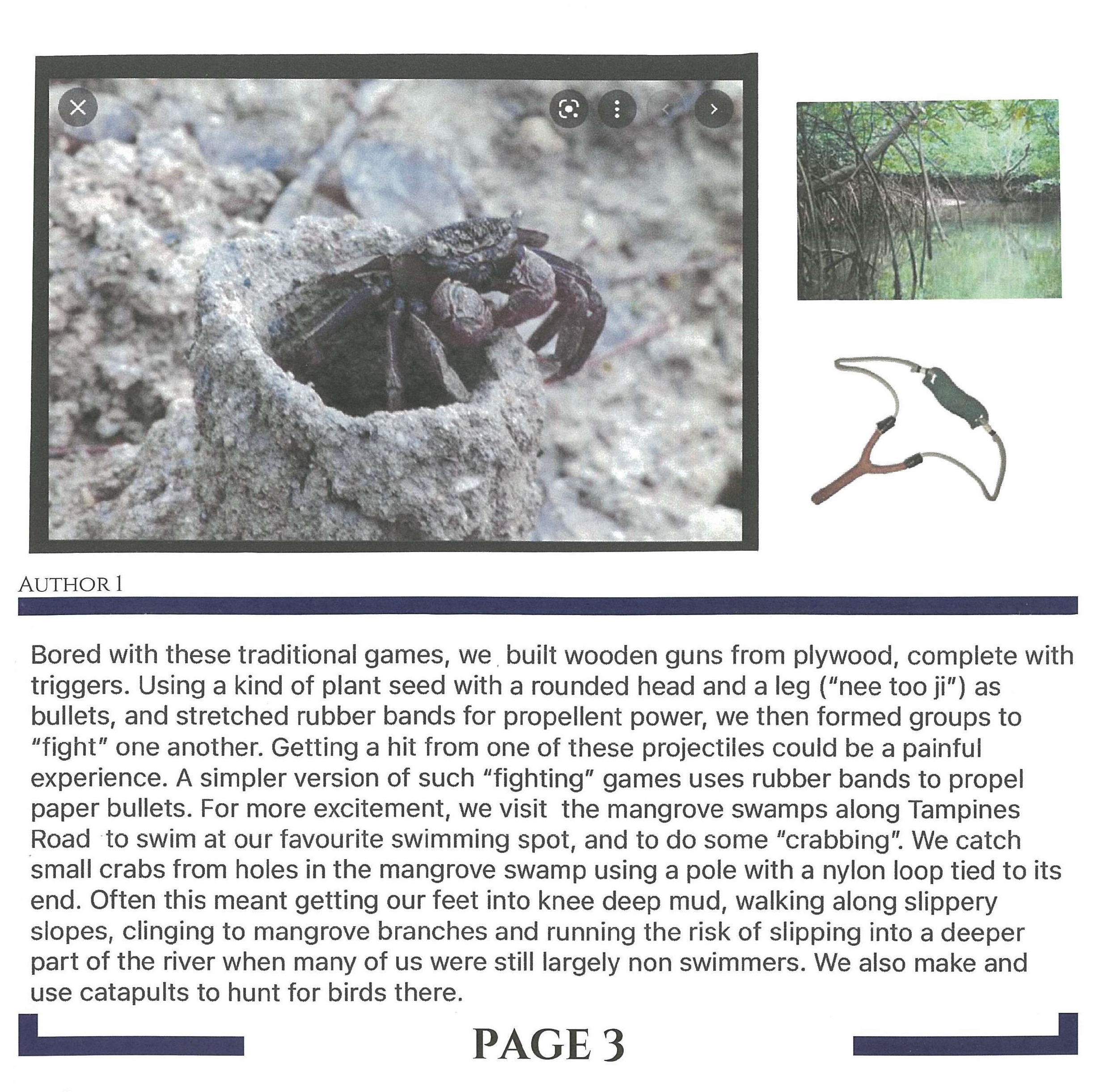

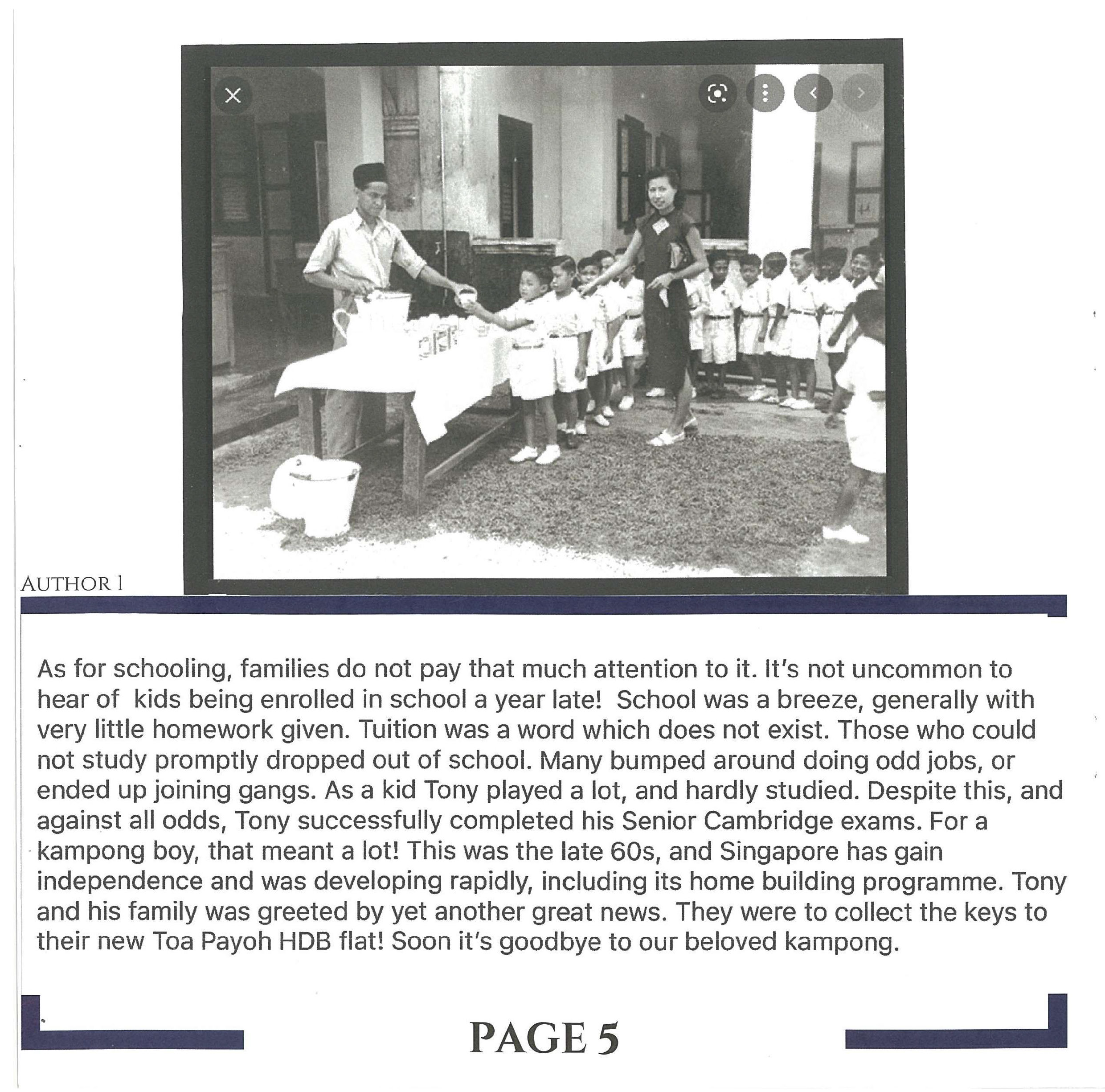
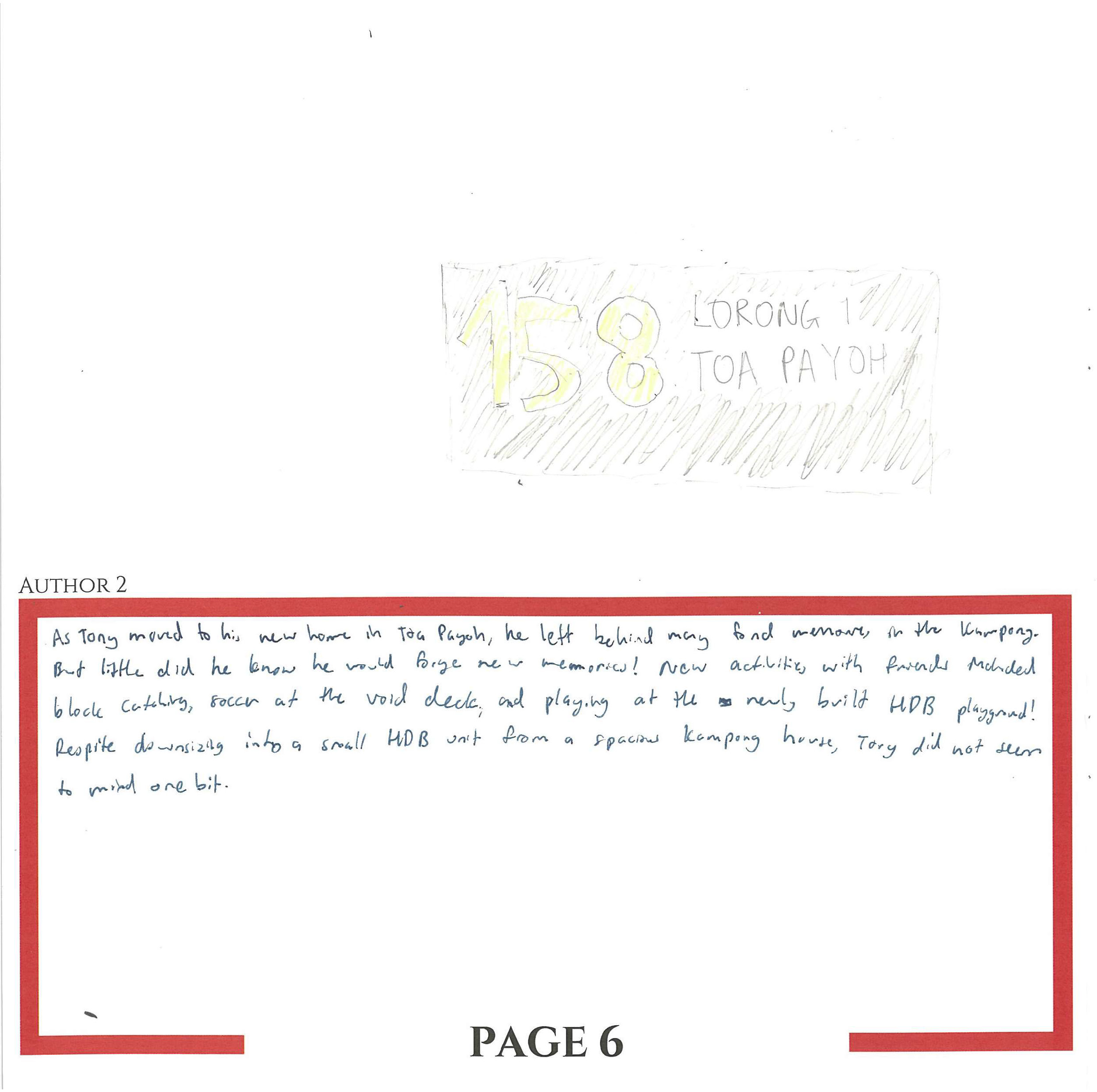
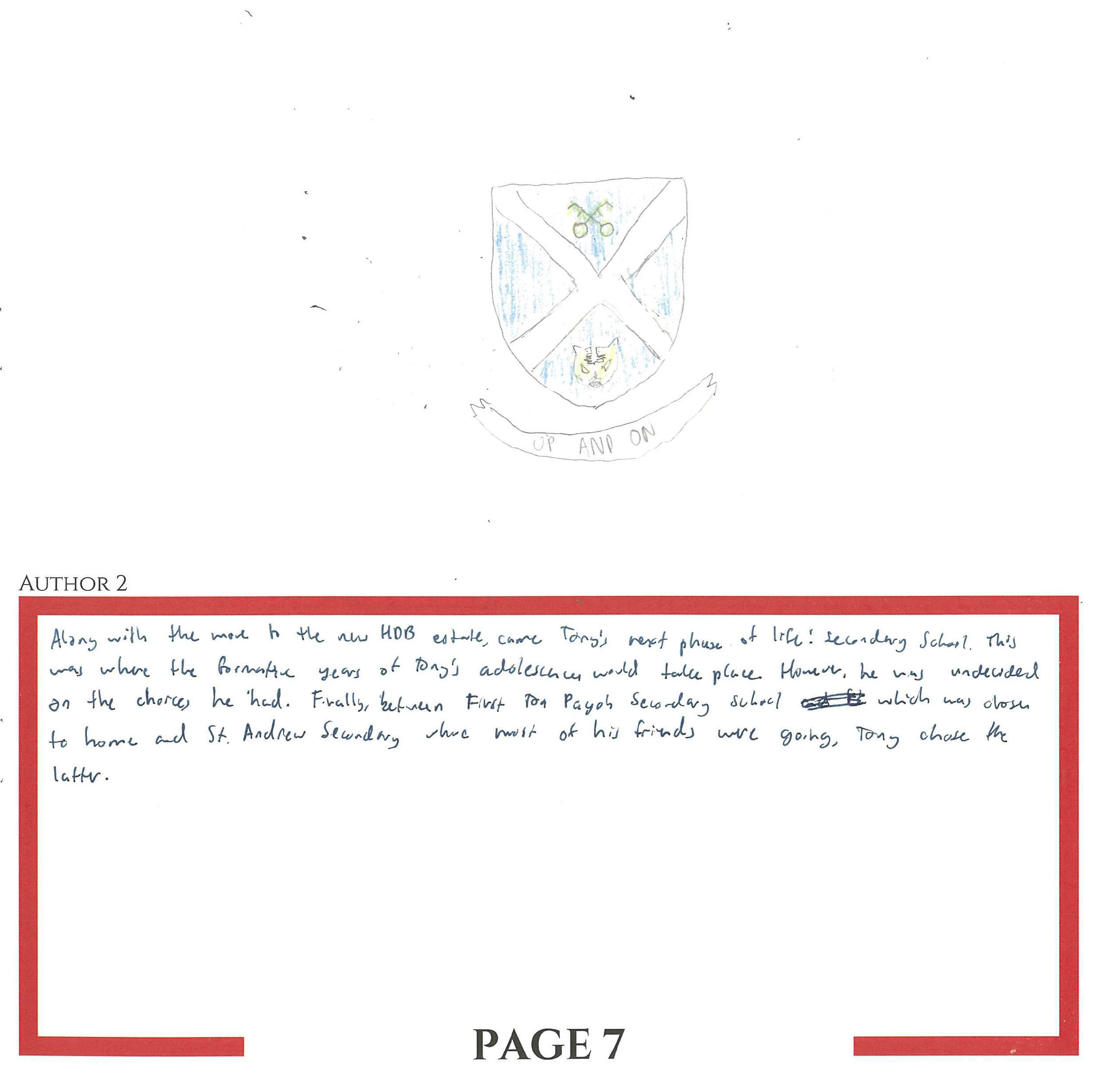
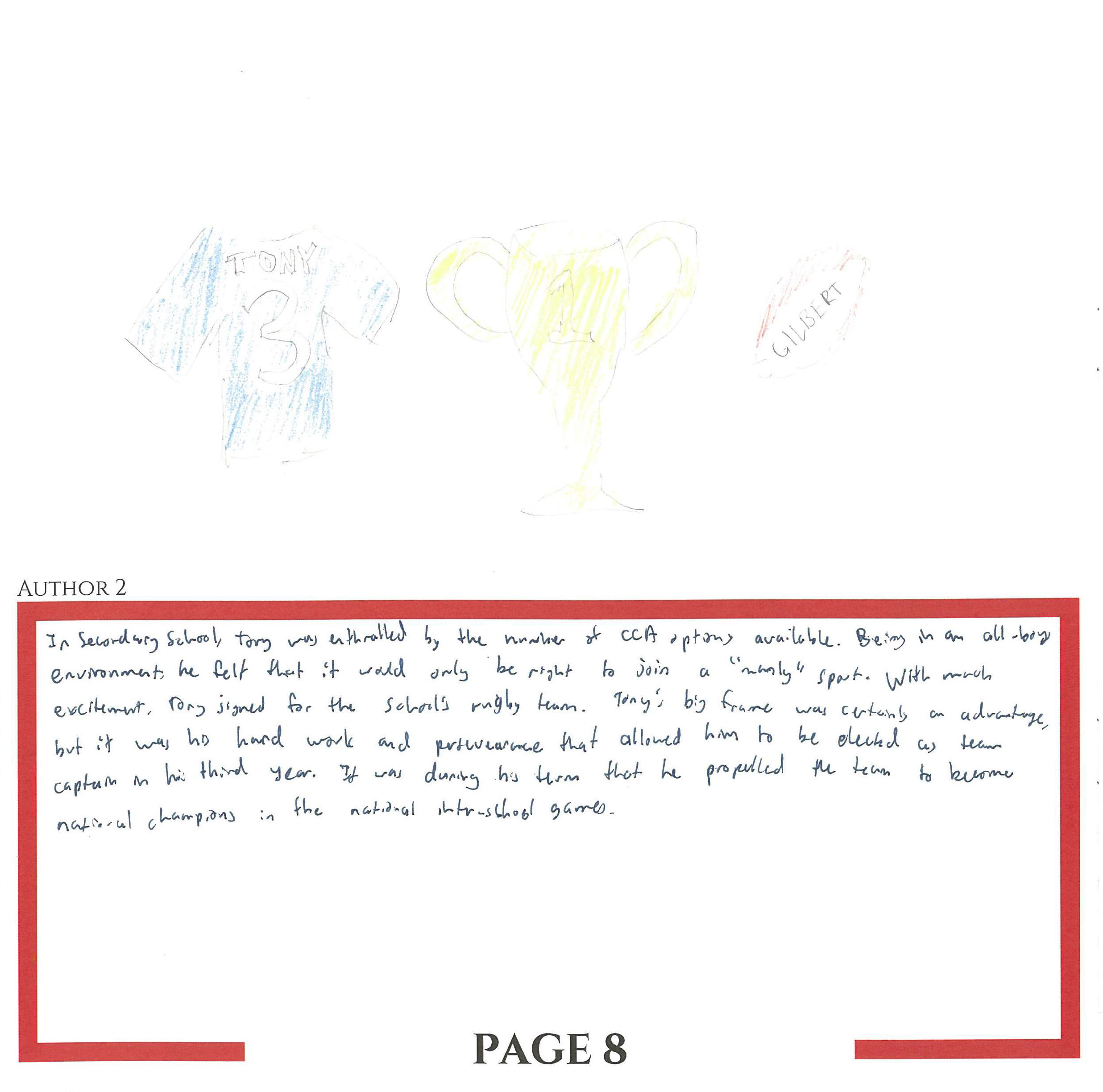
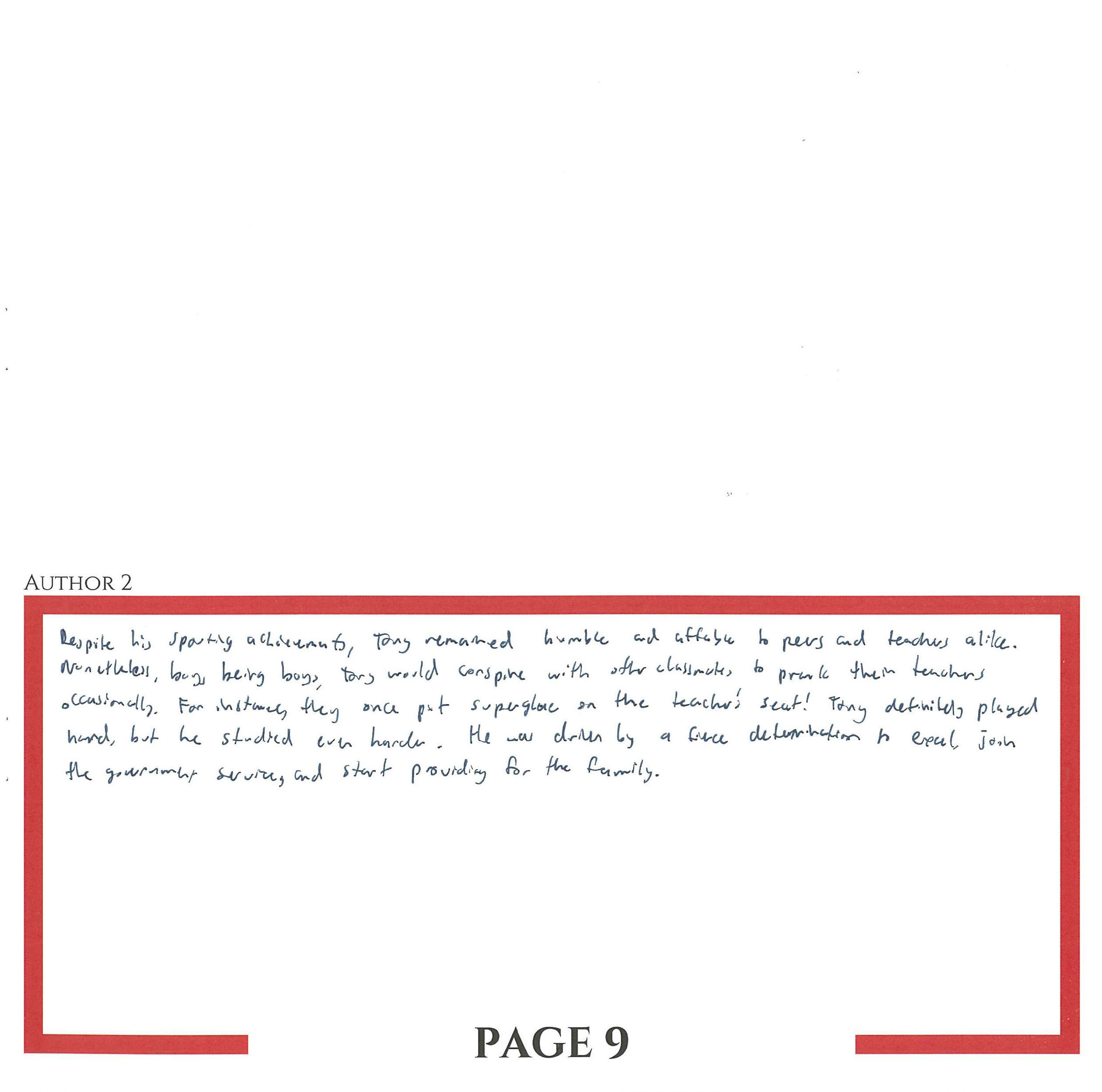
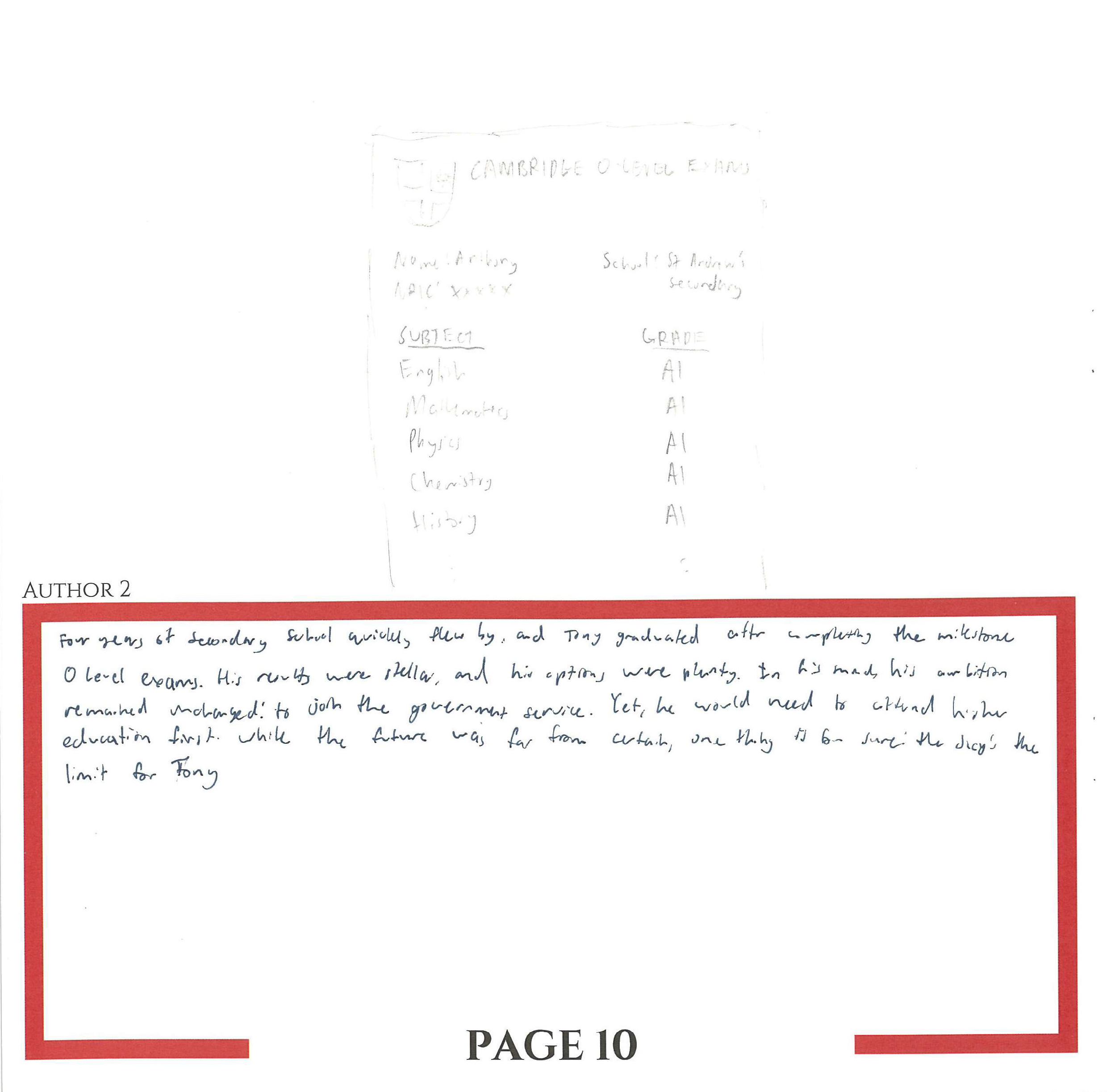
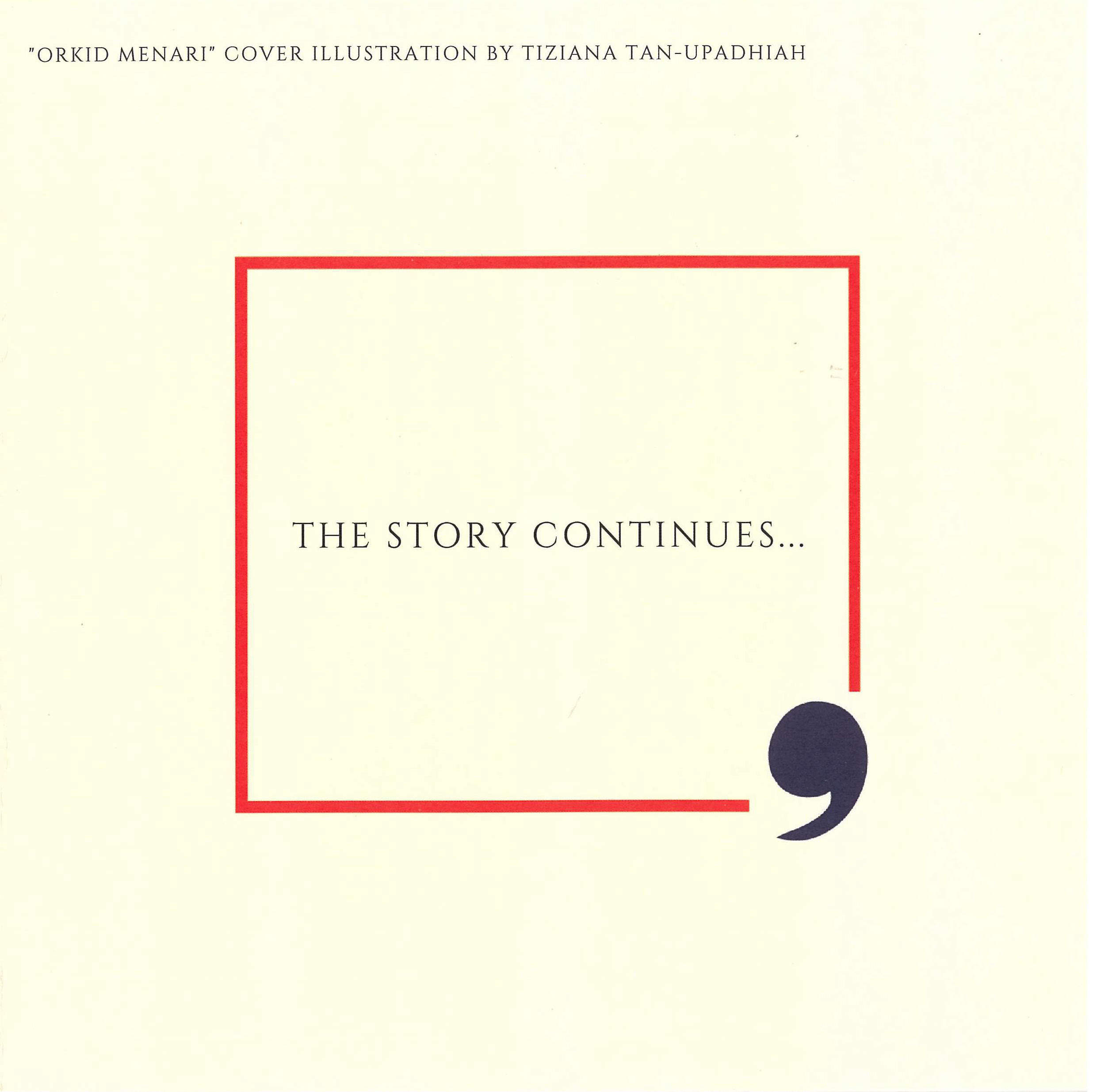
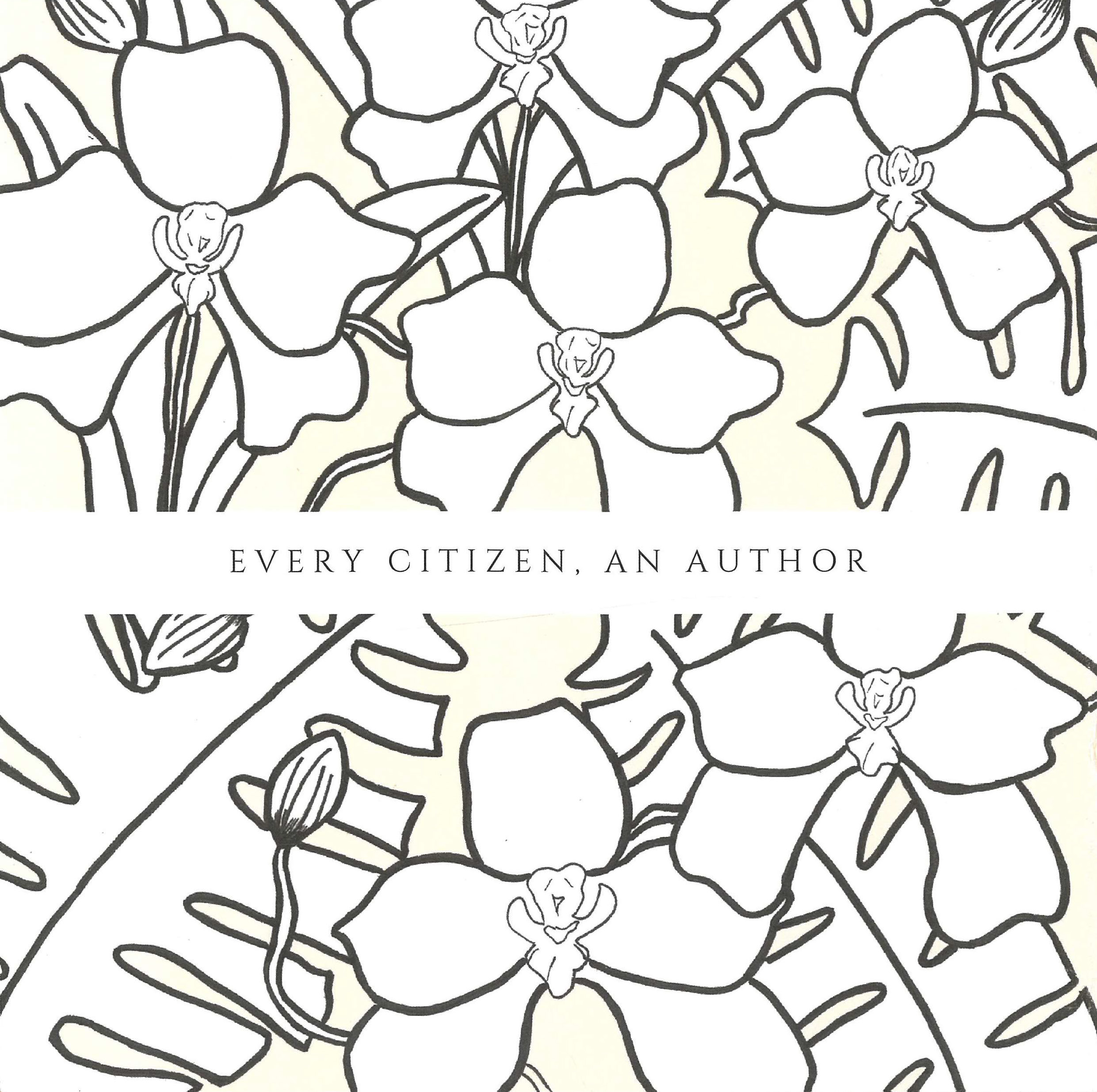
Anthony Chua:
Growing up in the 50s and 60s Tony lived through a memorable and unique period in Singapore's history. Home was a humble attap wooden house in a rustic village dotted by tall coconut trees, and dominated by a huge timber yard. There was no running water nor electricity nor modern sanitation. Water for washing, cooking, and drinking was drawn from the well. Houses light up at night using pressure kerosene lanterns and kerosene lamps. Women used firewood or charcoal for cooking, and toilets are of the Night Soil Bucket System. We were a friendly kampong comprising mostly Chinese and Malays, a Sikh family, and several Indian workers (coconut tree climbers )from the Toddy (alcohol) shops. Families were large, often with six or more children, and were poor. Life was a constant struggle.
However, as kids, we were oblivious to all these and we lived carefree lives. We improvised and invented our games and enjoyed ourselves. From the bushes, we caught spiders, put them into matchboxes, and use them to fight our friend's spiders. We also played marbles and hantam bola, whacking one another with a tennis ball. During the windy season we make kites to "pang layang" (fly kite) and to fight other kites. We watched excitedly as the kampong champions takes on newbies or fight amongst themselves. Many kites will be cut loose and be up for grabs. Group of boys will jostle to be the first to grab the loose kites as they descend often tearing the kites in the frenzy. We apply a coating of glass onto our kite strings. The more enterprising kampong boys will make and sell these glass strings to their classmates for extra pocket money! During the gasing or top season kids get hold of their gasings to out spin one another, or to knock their competitor's gasing off whilst still spinning.
Bored with these traditional games, we built wooden guns from plywood, complete with triggers. Using a kind of plant seed with a rounded head and a leg ("nee too ji") as bullets, and stretched rubber bands for propellent power, we then formed groups to "fight" one another. Getting a hit from one of these projectiles could be a painful experience. A simpler version of such "fighting" games uses rubber bands to propel paper bullets. For more excitement, we visit the mangrove swamps along Tampines Road to swim at our favourite swimming spot, and to do some "crabbing". We catch small crabs from holes in the mangrove swamp using a pole with a nylon loop tied to its end. Often this meant getting our feet into knee-deep mud, walking along slippery slopes, clinging to mangrove branches, and running the risk of slipping into a deeper part of the river when many of us were still largely non-swimmers. We also make and use catapults to hunt for birds there.
Perhaps the happiest times were when Chinese Wayang troupes come to perform in the kampong. This could be a Teochew, Hokkien, or Cantonese opera. As kids, it does not matter to us as most of the time we do not understand the language or the dialogue, and we certainly do not sit through the opera. We enjoy the bright lights, the colourful costumes, the stage and backdrops, and the musicians, especially when they drum up the beat during the fighting scenes. For most parts, the kids will roam the wayang grounds which will have a carnival and bazaar-like atmosphere with all sorts of entrepreneurs peddling their wares, hawkers selling their food, and opportunists engaging in all sorts of games of chance.
As for schooling, families do not pay that much attention to it. It's not uncommon to hear of kids being enrolled in school a year late! School was a breeze, generally with very little homework given. Tuition was a word which does not exist. Those who could not study promptly dropped out of school. Many bumped around doing odd jobs or ended up joining gangs. As a kid Tony played a lot, and hardly studied. Despite this, and against all odds, Tony successfully completed his Senior Cambridge exams. For a kampong boy, that meant a lot! This was the late 60s, and Singapore has gained independence and was developing rapidly, including its home-building programme. Tony and his family were greeted by yet another great news. They were to collect the keys to their new Toa Payoh HDB flat! Soon it's goodbye to our beloved kampong.
Clarence Siut:
As Tony moved to his new home in Toa Payoh, he left behind many fond memories in the Kampong. But little did he know he would forge new memories! New activities with friends included block catching, soccer at the void deck, and playing at the newly built HDB playground! Despite downsizing into a small HDB unit from a spacious kampong house, Tony did not seem to mind one bit.
Along with the move to the new HDB estate, came Tony’s next phase of life: Secondary School. This was where the formative years of Tony’s adolescence would take place. However, he was undecided on the choices he had. Finally, between First Toa Payoh Secondary School, which was closer to home and St Andrew’s Secondary where most of his friends were going, Tony chose the latter.
In Secondary School, Tony was enthralled by the number of CCA options available. Being in an all-boys environment, he felt that it would only be right to join a “manly” sport. With much excitement, Tony signed for the school’s rugby team. Tony’s big frame was certainly an advantage, but it was his hard work and perseverance that allowed him to be elected as team captain in his third year. It was during his term that he propelled the team to become national champions in the national inter-school games.
Despite his sporting achievements, Tony remained humble and affable to peers and teachers alike. Nonetheless, boy being boy, Tony would conspire with other classmates to prank their teachers occasionally. For instance, they once put super glue on the teacher’s seat! Tony definitely played hard but he studied even harder. He was driven by a fierce determination to excel, join the government service, and start providing for the family.
Four years at Secondary School quickly flew by and Tong graduated after completing the milestone O Levels exams. His results were stellar and his options were plenty. In his mind, his ambition remained unchanged: to join the government service. Yet, he would need to attain higher education first. While the future was far from certain, one thing is sure: the sky’s the limit for Tony.
